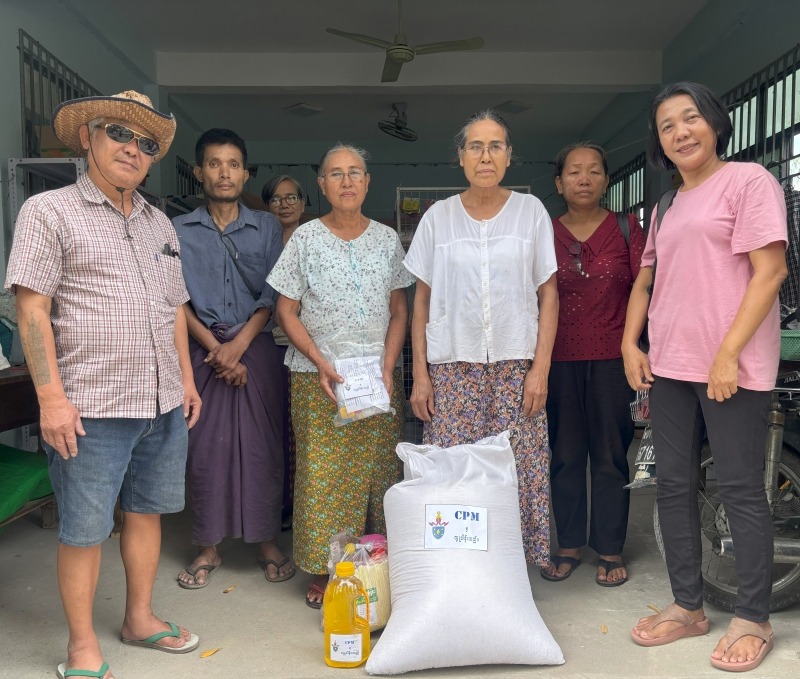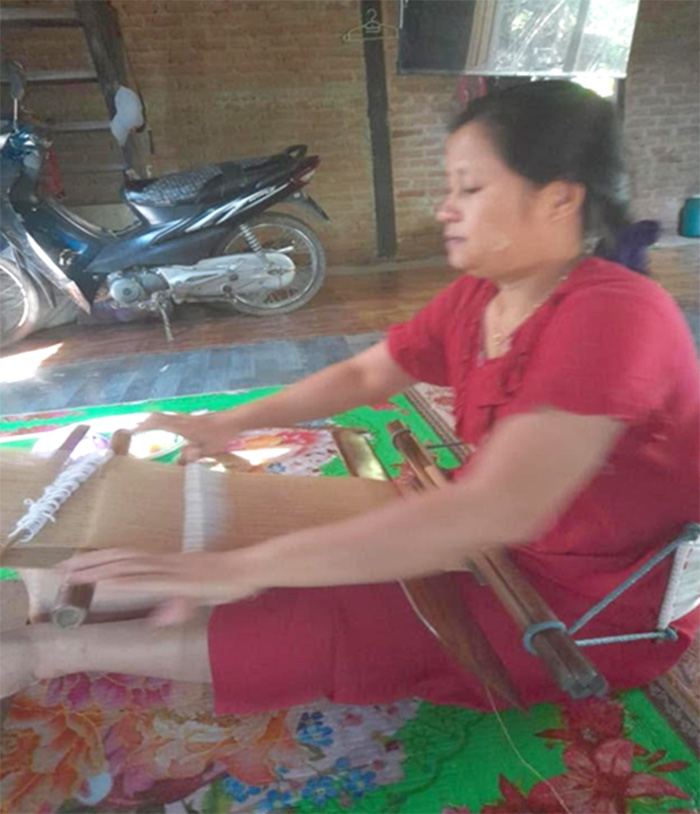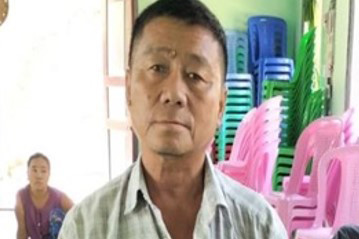Church of the Province of Myanmar (CPM)
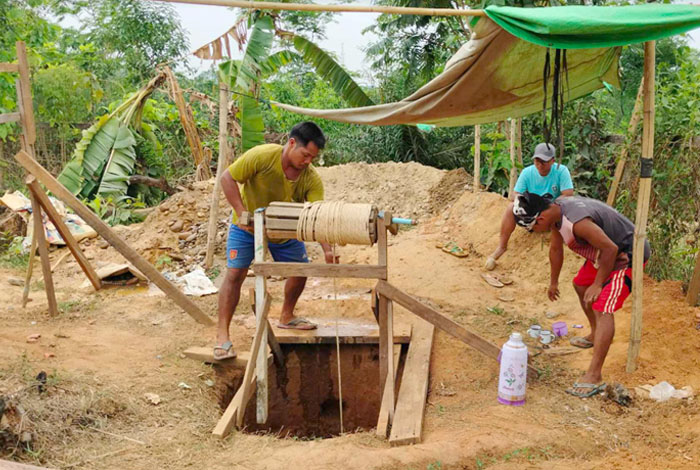
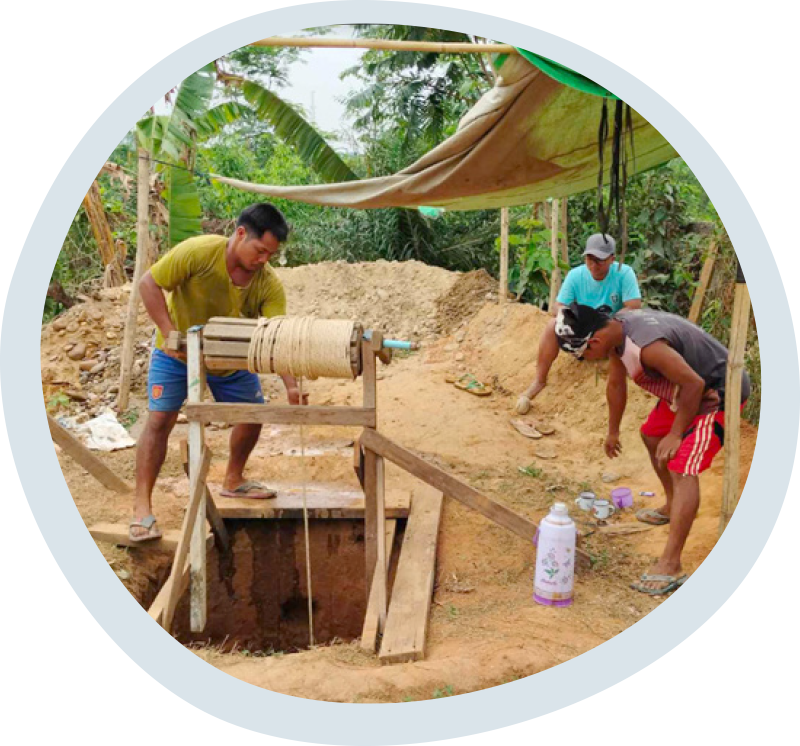
Myanmar
Geographically, Myanmar is one of the largest countries in South-East Asia.
Its ethnically diverse population is estimated to be around 54 million. The agricultural sector, including livestock and fisheries, is still considered to be the backbone of the economy, and almost half the labour force is engaged in agriculture for their livelihood.
Myanmar is also one of the poorest nations in the world and is the poorest country in Southeast Asia. It ranks 144th among 193 nations rated in the 2023 Human Development Report of the United Nations Development Programme. 32% of people live in poverty with a further 30% described as “economically insecure”. The incidence of poverty in rural areas is significantly higher than in urban areas, and rural areas lag behind in health, social and educational indicators.
COVID-19 and the military coup of early 2021, which brought increased conflict between some of the country’s ethnic groups and the regime, have led to increased poverty and displacement among rural people.
In addition to this, Myanmar is vulnerable to cyclones and flooding.
Our Partner
AID partners with the Church of the Province of Myanmar (CPM) to address these challenges, working together to implement programs aimed at improving access to Water, Sanitation, and Hygiene (WASH) and improving livelihoods, including small business training and improved agricultural practices.
The church is very active in responding to people affected by conflict and natural disasters.
CPM consists of six dioceses and three mission dioceses, with the provincial office based in Yangon. The church population is estimated at over 60,000, from predominantly Karen, Kachin, and Chin ethnic groups.
The development and emergency response work of CPM is coordinated through the provincial development desk in Yangon, which aims “to build healthy and self-reliant communities and churches”.
AID is committed to supporting further capacity building within the Church and its development desk, ensuring staff members are fully equipped to meet various development challenges as they are presented.
The Work We Support
1. Clean Water and Food Security
ABM AID supports CPM to work closely with local communities, in mainly remote parts of the country, to access clean water and achieve food security*.
One such community that has been supported to gain greater access to clean water, is Homalin, on the Chindwin River in Sagaing Region.
People in Homalin have, with the support of CPM, built a well and water system that provides clean and safe water to 50 people from 22 households.
Guests attending diocesan office training and local community members also benefit from this water supply for showering, cooking, drinking, and cleaning. Participants now keep the well clean by adding a cover and using pipelines and a motorized pump to fill the water tank, eliminating the need to manually draw water.
Additional training was provided in hygiene and sanitation. Previously, people relied on primitive sanitation methods, such as digging holes in the ground. Now, they use toilets, regularly wash their hands, and understand the importance of building toilets at least 15 m away from wells. They also received education on gender issues, domestic violence, and gender equality.
One way to increase food security is to train people to develop viable livelihoods and provide them with small start-up capital.
A group of women in a village in Hpa-an Diocese (in Kayin State in Myanmar’s southeast) previously earned money by hiring out their labour to embroidery and weaving establishments, but now they are able to weave and sell their own products via their own small businesses, achieving self-sufficiency for their families. Despite having limited formal education, these women are now successfully operating their own hand-weaving businesses. And with financial management training, they have also learned to manage their income effectively. A later stage of this work will provide the group with small start-up capital to buy looms and materials.
Naw Pat K’law is 27 years old. She says, “I am a mother of two children, with a third on the way. Life has been a journey of perseverance, as I take on random jobs in embroidery and weaving to support my family. Though I have the skills and passion for this craft, I lack the capital to start my own business, which has limited my ability to provide more for my family.
“Despite these challenges, I am determined to create a better future. With the right support, I believe I can turn my dream into reality. If given the opportunity to start my own weaving business, I can produce more cloth and generate a higher income than I ever have before. This would not only improve my life but also allow me to contribute to my community by creating beautiful, handcrafted textiles.
“I am ready to embrace this new chapter with hope and hard work, knowing that with a little help, I can achieve much more than I ever thought possible”, she said.
In Pyay Diocese in Bago region, north of Yangon, men were trained in repairing motorcycles. Michael Khaing Htoo was one of them.
“Our village is very far from the city”, said Michael, “making transportation quite challenging. A passenger car typically travels from our village to Pyay City once a day to buy groceries, food, and other necessities. However, if one of the passengers misses the car, they have to wait until the next day.
“So, motorcycles are incredibly useful for our community, allowing us to travel anywhere and anytime. Unfortunately, when a motorcycle breaks down, we have always had to send it to a repair centre, which is expensive and far from our village. This is why motorcycle repair training is so valuable for our community and us. We need this training to repair our motorcycles and assist our community with our newly acquired expertise.
“My main work involves agriculture and husbandry. The Health Department has assigned me to vaccinate animals in our community, especially cows, pigs, and buffaloes. To do this, I rely heavily on my motorcycle to travel everywhere in the community. In the past, I used to worry a lot about my motorcycle breaking down during my travels. Now, thanks to the training I received, I no longer have to worry about that.
“I am immensely grateful to our trainer, to the Development Department of Pyay Diocese, and to ABM AID for this invaluable training”, Michael said.
2. Emergency Responses to People Displaced by Conflict and Disaster
Since early 2021, ABM AID has been supporting the urgent needs of people in Myanmar displaced by conflict and natural disasters through an ongoing emergency appeal. You can learn more about this appeal here.
How You Can Help
- $75 can provide training to a village in either child protection or gender awareness
- $100 can provide all the piping from a newly dug tube well to people in a village
- $150 can provide training for a community group in hygiene and sanitation as part of a WASH activity
You can contribute to this work to build sustainable livelihoods and provide access to clean, safe water for rural communities in Myanmar. Your support continues these transformative projects, creating hope, dignity, and opportunity for more remote families struggling with poverty to improve their own lives.
* having access to sufficient safe and nutritious food that meets dietary needs and food preferences for an active and healthy life. The World Bank.
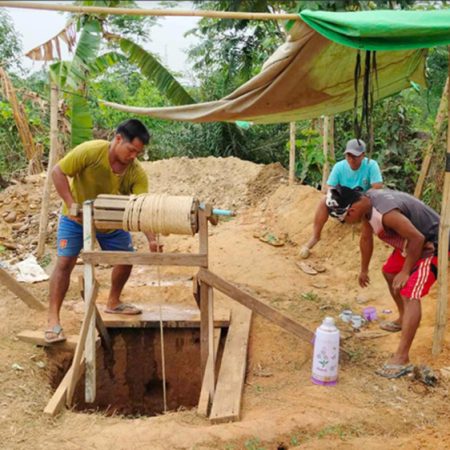
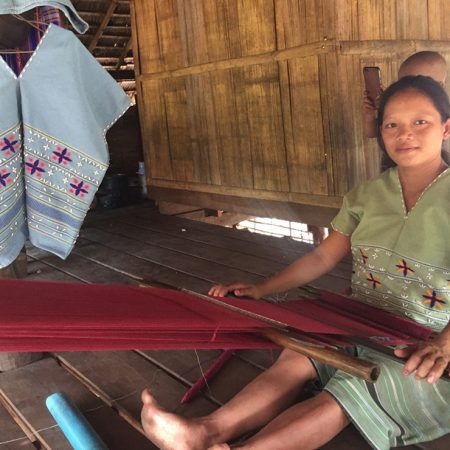
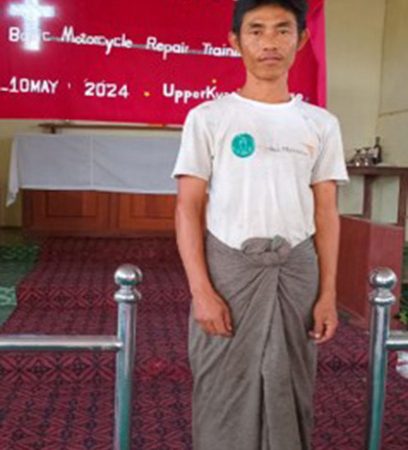
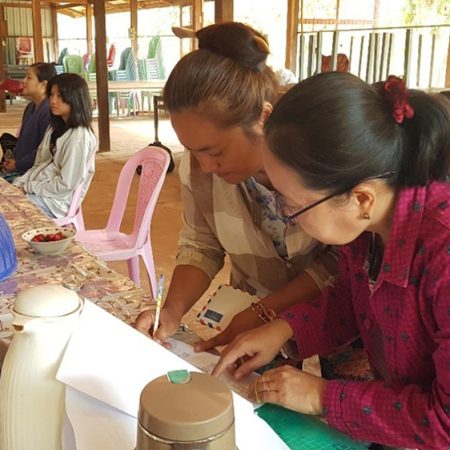
Prayer
for our Partner
Hear our prayers, O God, for the people of Myanmar, as we give thanks for their endurance and hardiness in the face of adversity.
Bless all the people involved in clean water and food security work throughout the communities of the country.
Bless, too, those who have had their lives uprooted by conflict and natural disasters.
We ask also for your blessing upon all those who have taken the people of Myanmar into their hearts and have supported them so generously.
We make our prayer through Jesus Christ our Lord.
Amen.
We hope to raise
$125,000
for this partner
Donation code: XG011
Tax-deductible
Donate Online Now
You can contribute to this work to build sustainable livelihoods and provide access to clean, safe water for rural communities in Myanmar. Your support continues these transformative projects, creating hope, dignity, and opportunity for more remote families struggling with poverty to improve their own lives.
Click here for other donation options
Need help? Call us 1300 302 663
As noted, this is a tax-deductible project. All donations are in Australian dollars (AUD) and all gifts of $2 or more are tax-deductible. Gifts are received by the trustee for the ‘Anglicans in Development Ltd’ ABN 86 647 293 481 Gifts will be applied to the support of projects selected. In the unlikely event of projects being oversubscribed or not proceeding to completion, donations will be applied to similar projects.
Updates
Local Church in Myanmar Helps People Recover and Rebuild After Earthquake
The Church of the Province of Myanmar (CPM) is getting used to responding to emergencies. When an earthquake struck the Dioceses of Mandalay and Taungoo in March 2025, the church and its network of volunteers were quick to respond. Thanks to the generosity of our supporters, ABM AID was able to support the distribution of food relief and cash assistance to more than 500 earthquake-affected families across both dioceses.
Naw War Lae Mu Weaves her own recovery after Myanmar Floods
It’s good to know that assistance from ABM supporters can help so many people get back on their feet after a natural disaster. When floods struck the Dioceses of Mandalay and Taungoo Dioceses in Myanmar in September 2024, Naw War Lae Mu's house and many of her possessions damaged and swept away.
The Human Face of Displacement in Myanmar
Although the Church of the Province of Myanmar is reaching out to support people displaced by natural disasters and conflict, for those affected, the road travelled is never easy.
